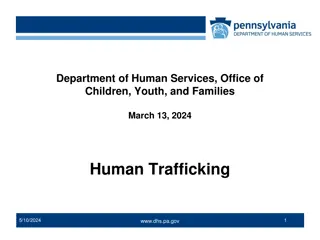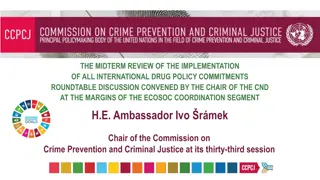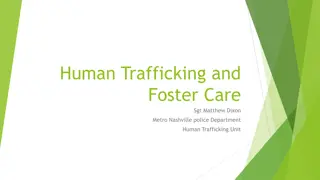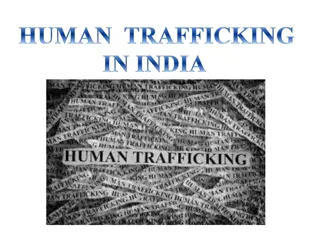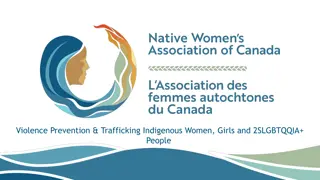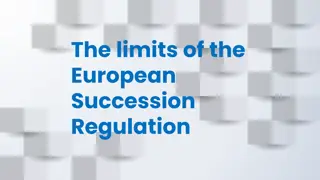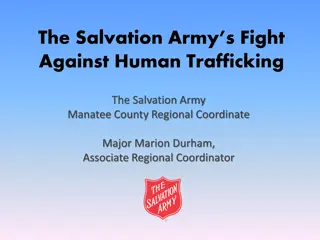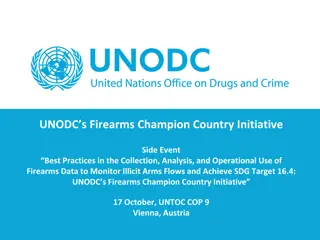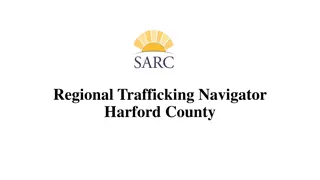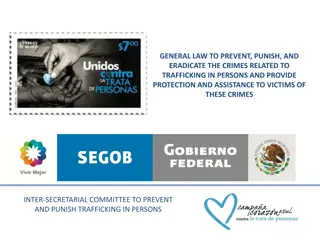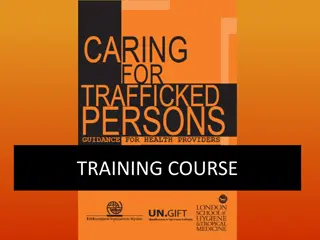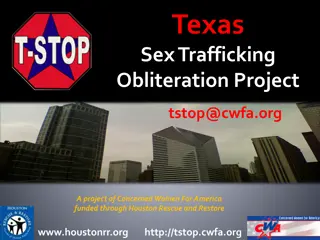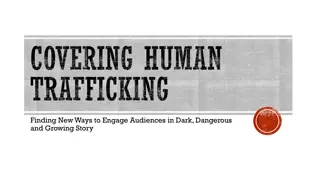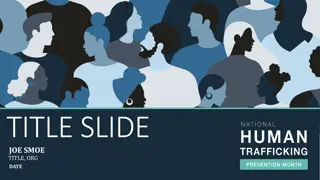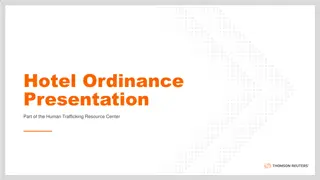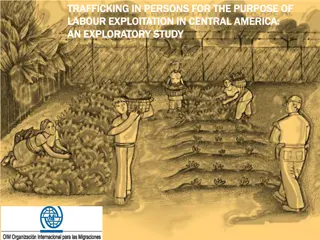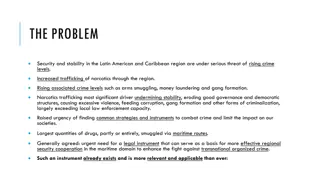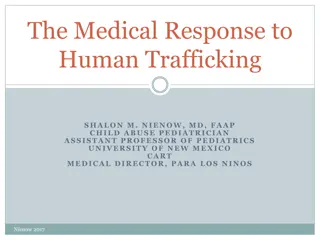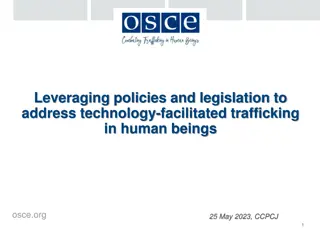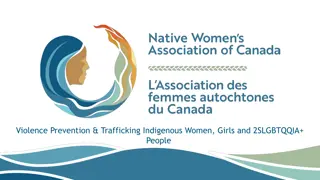
International and European Legislation on Trafficking in Persons
The Palermo protocol supplements the UN Convention against Transnational Organized Crime by defining "Trafficking in persons" and outlining measures to combat this crime, especially regarding the exploitation of women and children. It addresses criminalization, victim rights, and facilitating the return of child victims of trafficking. The protocol emphasizes protecting victims from punishment, ensuring appropriate legal safeguards for children, and imposing penalties on traffickers. It also focuses on confiscating proceeds of trafficking for the benefit of victims.
Download Presentation

Please find below an Image/Link to download the presentation.
The content on the website is provided AS IS for your information and personal use only. It may not be sold, licensed, or shared on other websites without obtaining consent from the author. If you encounter any issues during the download, it is possible that the publisher has removed the file from their server.
You are allowed to download the files provided on this website for personal or commercial use, subject to the condition that they are used lawfully. All files are the property of their respective owners.
The content on the website is provided AS IS for your information and personal use only. It may not be sold, licensed, or shared on other websites without obtaining consent from the author.
E N D
Presentation Transcript
International and European Legislation on Trafficking in Persons SSHR, Palermo, 6 July 2017
Three main instruments Palermo protocol (UN) Coiuncil of Europe Convention EU directive
Palermo protocol (2000) Supplements UN Convention on Convention against Transnational Organized Crime Protocol to Prevent, Suppress and Punish Trafficking in Persons, especially Women and Children Instrument to combat crime, binding language on criminalisation, weaker language on rights of victims ( Shall consider ) Coined definition: "Trafficking in persons" shall mean the recruitment, transportation, transfer, harbouring or receipt of persons, by means of the threat or use of force or other forms of coercion, of abduction, of fraud, of deception, of the abuse of power or of a position of vulnerability or of the giving or receiving of payments or benefits to achieve the consent of a person having control over another person, for the purpose of exploitation. Exploitation shall include, at a minimum, the exploitation of the prostitution of others or other forms of sexual exploitation, forced labour or services, slavery or practices similar to slavery, servitude or the removal of organs... The consent of a victim of trafficking in persons to the intended exploitation set forth [above] shall be irrelevant where any of the means set forth [above] have been used.
Palermo protocol (cont.) - Facilitating the return and acceptance of children who have been victims of cross-border trafficking, with due regard to their safety - Prohibiting the trafficking of children age) for purposes of commercial sexual exploitation of children (CSEC), exploitative labour practices, or the removal of body parts - Suspending parental rights of parents, caregivers, or any other persons who have parental rights in respect of a child should they be found to have trafficked a child - Ensuring that definitions of trafficking reflect the need for special safeguards and care for children, including appropriate legal protection - Ensuring that trafficked persons are not punished for any offences or activities related to their having been trafficked, such as prostitution and immigration violations - Ensuring that victims of trafficking are protected from deportation or return where there are reasonable grounds to suspect that such return would represent a significant security risk to the trafficked person or their family - Considering temporary or permanent residence in countries of transit or destination for trafficking victims in exchange for testimony against alleged traffickers, or on humanitarian and compassionate grounds - Providing for proportional criminal penalties to be applied to persons found guilty of trafficking in aggravating circumstances, including offences involving trafficking in children or offences committed or involving complicity by state officials - Providing for the confiscation of the instruments and proceeds of trafficking and related offences to be used for the benefit of trafficked persons
Council of Europe convention (2005) comprehensive scope: all forms of trafficking (whether national or transnational, linked or not linked to organised crime) all persons who are victims of trafficking (women, men or children) Preamble defines trafficking in human beings as a violation of human rights and an offence to the dignity and integrity of the human being. rights for victims of trafficking, in particular the right to be identified as a victim, to be protected and assisted, recovery and reflection period of at least 30 days, renewable residence permit, compensation for the damages suffered Independent monitoring: Group of Experts on Action against Trafficking in Human Beings (GRETA)
EU directive on preventing and combating trafficking in human beings and protecting its victims, (2011) - A broad concept of what should be considered trafficking in human beings. Penalties for traffickers have been extended from 8 to 10 years within the EU Support to victims not conditional on cooperation EU Member States shall take the necessary measures to ensure that victims of human trafficking are not punished for their compelled involvement in criminal activities. Each Member State will have to investigate and prosecute offences committed in whole or in part within its territory or committed by one of its nationals, even outside of its territory Member States should provide free legal assistance for victims of human trafficking, in case the victim does not have sufficient financial resources, special protective measures are envisaged for child victims Reducing demand idea - - - - - - -
Tendencies - - - From crime fighting to human rights Binding provisions on rights of victims Implementation still difficult, e.g. Noin punishement or comprehensive assitance Traditional concept of trafficking in practice -
CCME Thank you for your attention! Churches Commission for Migrants in Europe Rue Joseph II 174 B-1000 Brussels www.ccme.eu

